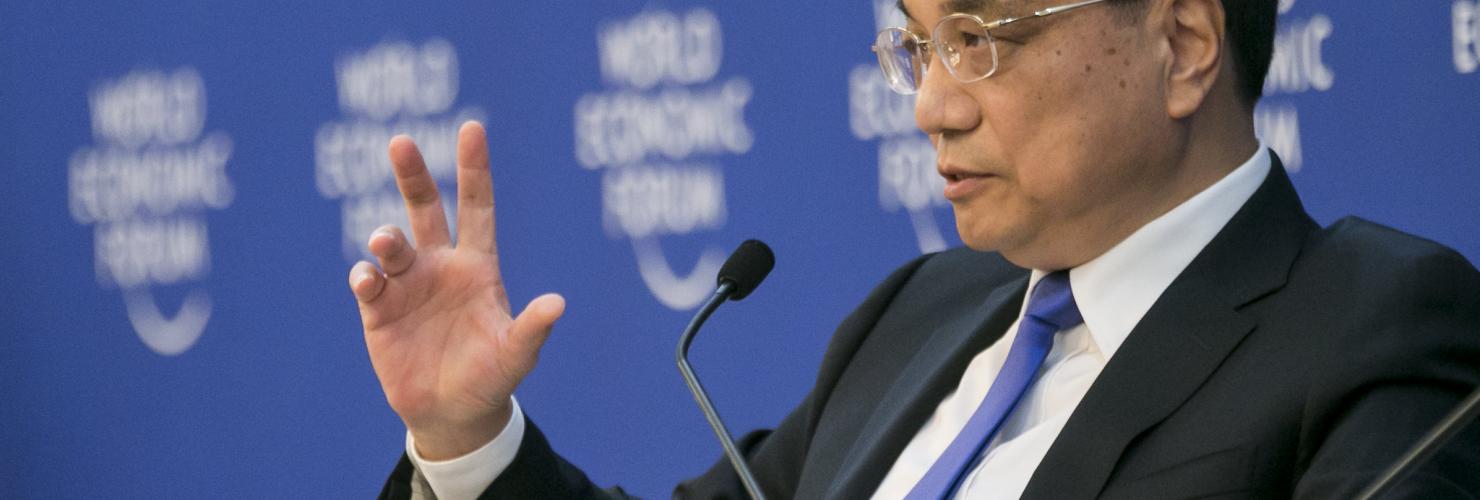

EU must not be naive about Chinese promises of fairer competition
Beijing talks up equality for foreign and domestic businesses but action is slow, say Mikko Huotari and Agatha Kratz.
In mid-October, Chinese Premier Li Keqiang promised a delegation of foreign businesses that China would "create a market-oriented, law-based and international business environment... in which Chinese and foreign-invested enterprises will be treated as equals."
Noise from the U.S.-China trade war is making it difficult to appreciate that these could be more than just empty words. But there is a real debate going on in China in which reformers are promoting the idea of greater competitive neutrality for foreign businesses and China's state and private companies.
There is reason to doubt, however, that leaders in Beijing are willing and able today to implement necessary structural adjustments, and so the EU must prepare itself for a long-term struggle.
At first glance, there are encouraging signs of moves toward competitive neutrality, and further steps toward greater market-opening. These include draft regulations for the latest foreign direct investment law, which also promise to address issues related to the protection of intellectual property and trade secrets.
Western companies have long lobbied for Beijing to stop favoring state-owned companies and start allowing free and fair competition in its huge home market. A more even playing field between different economic actors in China would go a long way to tackle some of the most ingrained European and U.S. grievances about how unfair Chinese practices affect Western companies at home and abroad.
A fairer competitive environment would spur China's potential growth
Ensuring competitive neutrality would also boost China's own economic prospects by making the country more attractive to overseas capital and helping it tackle some of its most entrenched and costly economic distortions, from the preferential financing of inefficient state businesses to wasteful and distortive industrial policies.
Establishing a fairer and more efficient competitive environment at home would spur China's potential growth, much to Beijing's own advantage.
But whenever he has been faced with decisive reform opportunities in his six-year reign, Xi and his team have opted for stability, risk-averse strategies and often doubled down on a state-led approach.
What is more, some of the economic policy features the West criticizes the most, including promoting state-owned enterprises, or SOEs, as national champions, market closure of strategic sectors and industrial subsidies, are still seen in Beijing as a recipe for success for China's techno-nationalist industrial policy approach.
Beijing has a small window of opportunity to prove doubters wrong -- but the EU needs to assemble policy options in case Beijing once again does not make good on its reform promises.
In a recent report, supported and published by the independent Bertelsmann Stiftung foundation, we took stock of concrete policy measures available to European stakeholders to tackle continued if not expanding China-induced economic distortions.
Options include reforms of the EU's competition regime which might allow for greater market concentration at home to face China's globally expanding SOEs. Restricting access to European procurement markets is also on the table, with a view to creating leverage for greater market opening in China.
More modest approaches would seek to further beef up existing trade defense instruments while proponents of a more ambitious approach suggest an expansive external application of European state aid policies.
Some of these tools could be deployed at the EU level; others will necessitate a multilateral approach, alongside like-minded partners. Each of them involves important trade-offs and possibly economic and political costs in our relations with China while affecting partnerships with our closest allies.
A piecemeal approach will not be enough
EU leaders will need to weigh these factors carefully in prioritizing their next move in terms of China policy. But whichever option they chose, they will need keep three key considerations in mind.
First, a piecemeal approach will not be enough. To confront a systemic China problem, the EU will have to pursue a much more integrated approach across policy fields.
Second, the EU will need to avoid nonmarket practices it objects to abroad and stay true to its core market-based principles. Europe's response needs to be a positive agenda for member states and EU institutions to enable a thriving market environment that fosters innovation and growth.
Third, EU efforts in tackling China-related distortions will benefit from a much higher degree of coordination with partners including Japan, Australia and Canada. OECD economies will struggle to compete with China's adaptive state capitalism if they do not have domestic and international rules in place to more forcefully tackle the market-distorting behaviors of SOEs, state-guidance funds and other forms of state intervention.
To get there, the EU will first have to get some basic homework done. It urgently needs reliable mechanisms for coordinating China policy approaches across fields and between EU institutions and member states. It also needs much greater institutional capacity to monitor and analyze China's reform progress, delays or regress, and the implications for Europe.
Only with such mechanisms and capacities in place will the EU be able to convince relevant stakeholders and to develop targeted responses adjusted to the emerging realities of China's changing path of reform. The key challenge will be to hold the EU together in pursuing a more assertive agenda if China's leaders see competitive neutrality only as fine words, not firm policy.
This article was first published by Nikkei Asian Review on November 17, 2019.


